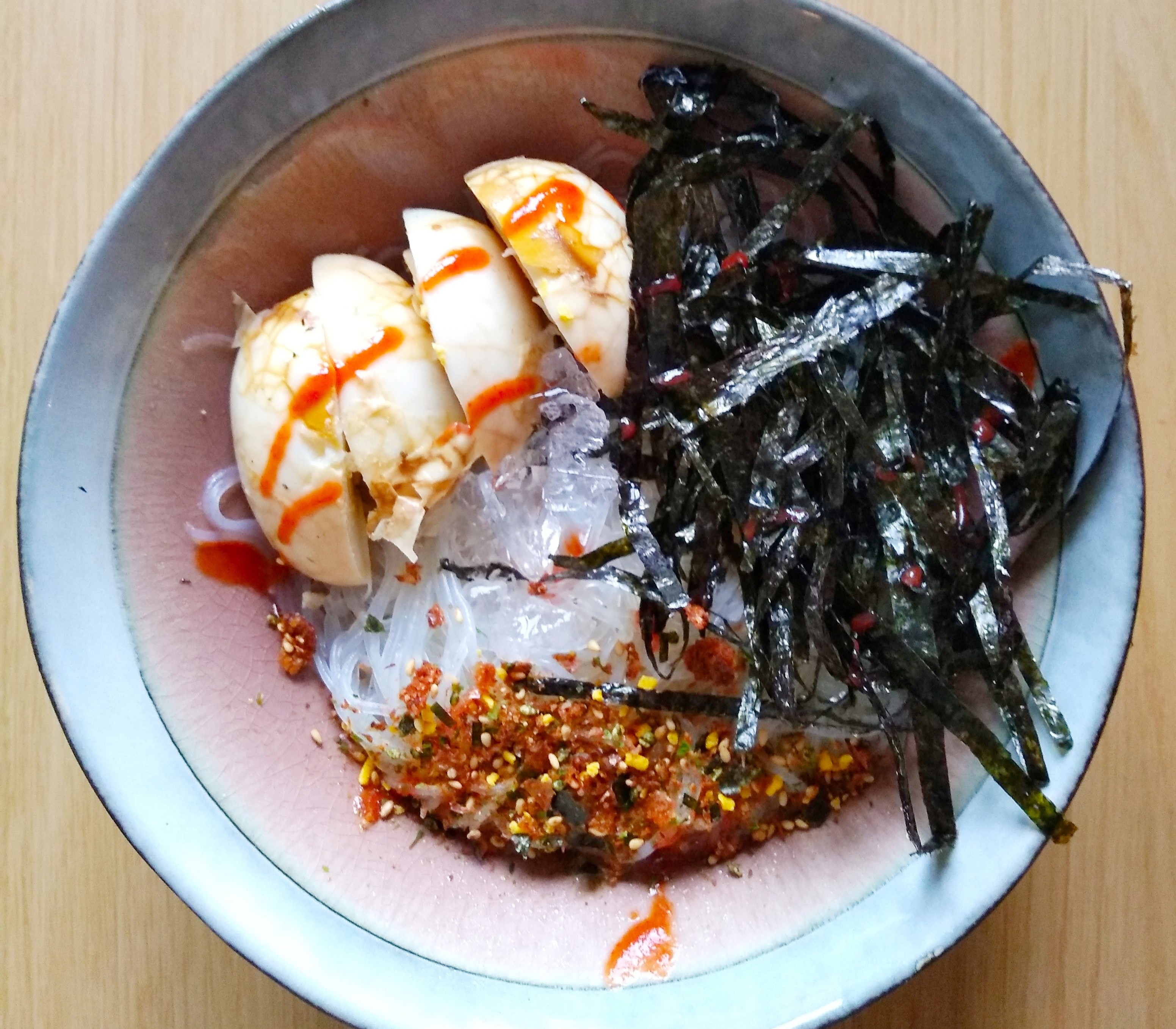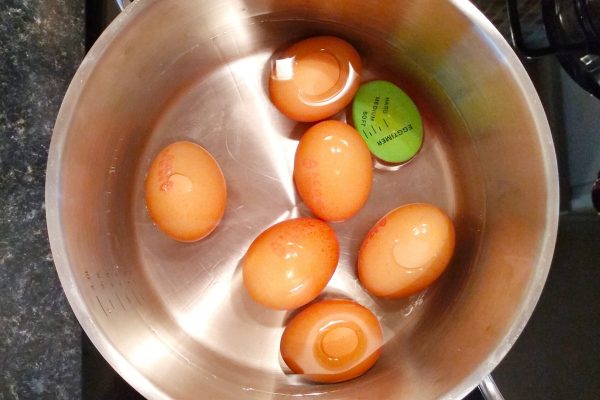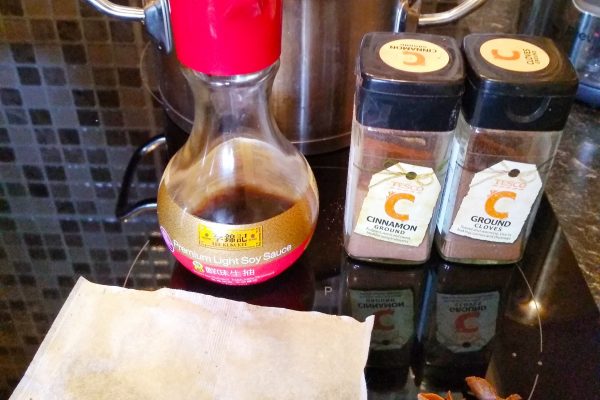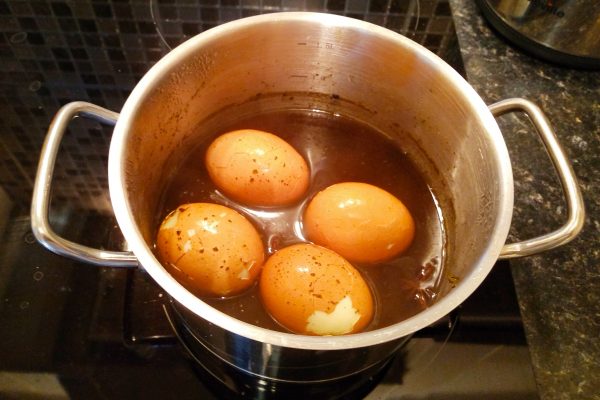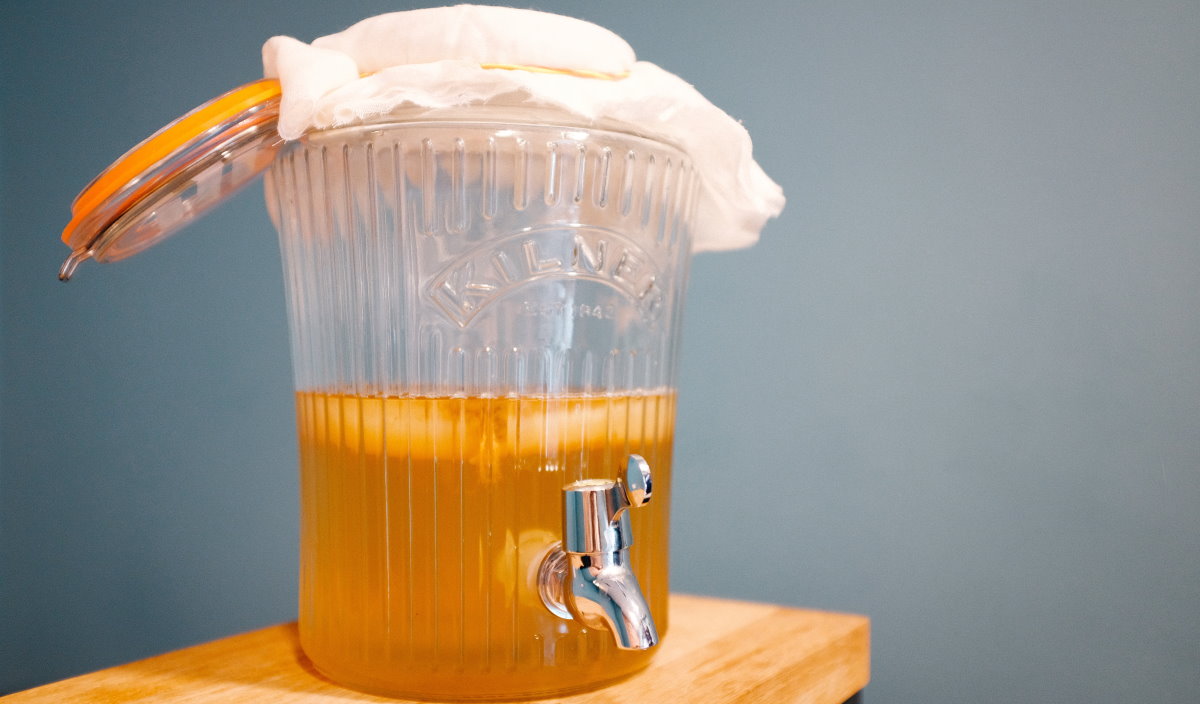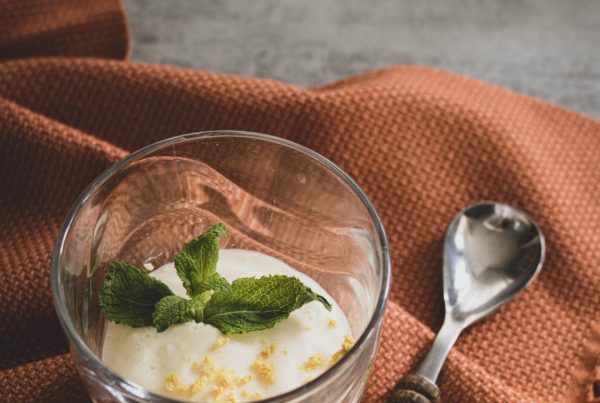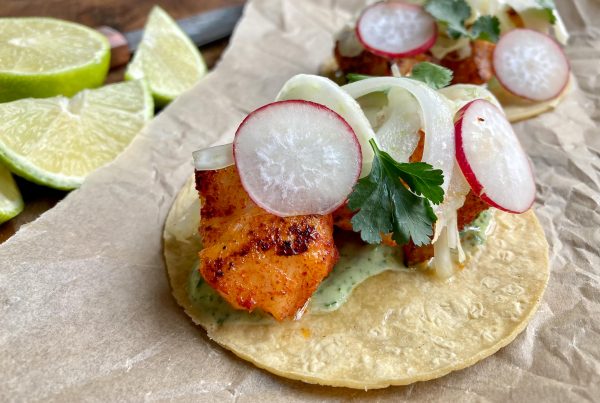With the heat of summer firmly upon us, a refreshing meal can offer a delicious respite from the heat. In Korea and Japan, a cold buckwheat soba noodle salad is often the dish of choice when the weather is warm.
Interestingly this dish is topped with crushed ice; this is done for two reasons. One, it makes the meal cold and refreshing, and two as it melts it mixes with the other ingredients and creates a tasty cold broth.
I like to serve the cold noodle salad with a tea stained egg. Staining with tea takes the common hard-boiled egg and changes the flavour and texture, while creating a beautiful marbled design on the egg. Originating from China, this snack is a common item sold by street vendors and in night markets. Traditionally made with black tea, in this recipe I’ve used green tea for a slightly different flavour.
In this recipe I’ve used low FODMAP spice and garnishes. There are no detectable FODMAPs in eggs and they are one of the most versatile things anyone on a low FODMAP diet can eat, given their numerous preparation methods. Everything else in this recipe is also considered low FODMAP.
Low FODMAP Tip: Buckwheat soba noodles or rice noodles are a great low FODMAP noodle option to use in place of wheat noodles.
Recipe
Difficulty Rating: Medium
Prep/ Cooking Time: 9 hours prep (to stain the eggs) / 15 minutes assembly
Serves: 2
Ingredients
For the tea stained eggs
- 4 eggs
- 1 teaspoon salt
- 750ml water
- 1 tablespoon of soy sauce
- ¼ teaspoon of salt
- 2 tablespoons of green tea leaves
- 2 star anise pods
- 1 teaspoon of ground cinnamon
- ½ teaspoon of ground cloves
For the noodle salad
- 150g buckwheat soba noodles
- ½ a cucumber cut into matchsticks
- 1 teaspoon of rice wine vinegar
- 1 teaspoon of sesame oil
- 1 sheet of dried nori seaweed
- 1 tablespoon of crushed ice, for serving
Method
- Start by adding the eggs into a pot and just cover with water. Add salt and bring to the boil.
- Reduce the heat and simmer for 20 minutes.
- Remove from the heat and run under cold water until cooled.
- Tap the shells with the back of a spoon lightly, to crack the shell, but do not remove the shells.
- In another pot add 750ml of water, soy sauce, tea leaves, cinnamon stick, star anise and ground cloves. Bring to the boil.
- Reduce the heat and simmer for 45 minutes.
- Remove from the heat, add the eggs and let marinade for 8 hours (place in a small tupperware container if need be to make sure the eggs are covered).
- Once steeped, remove the shells to reveal a beautiful marbled pattern.
- Reserve the liquid when finished.
- Next, cook the noodles according to the packet (buckwheat soba noodles are a little chewier than normal, so don’t worry, they aren’t undercooked).
- Run the noodles under cold water in a colander, wash thoroughly and allow to drain.
- In the bottom of your serving bowl, add the rice wine vinegar, sesame oil and two tablespoons of the reserved tea marinade.
- Toss the noodles and cucumber in this mixture.
- Top with the nori strips and 2 tea stained eggs, quartered.
- Drizzle with hot sauce and top with a large tablespoon of crushed ice.
Low FODMAP Tip: I used sriracha sauce for the hot sauce. This contains garlic, so it’s not suitable during the elimination phase of the low FODMAP diet. However some people may find it suitable in small amounts. Tabasco sauce is a great low FODMAP hot sauce, or you could top your dish with some chili pepper powder for a nice low FODMAP kick! Use sparingly though, as spicy foods can be a gut irritant for some people.
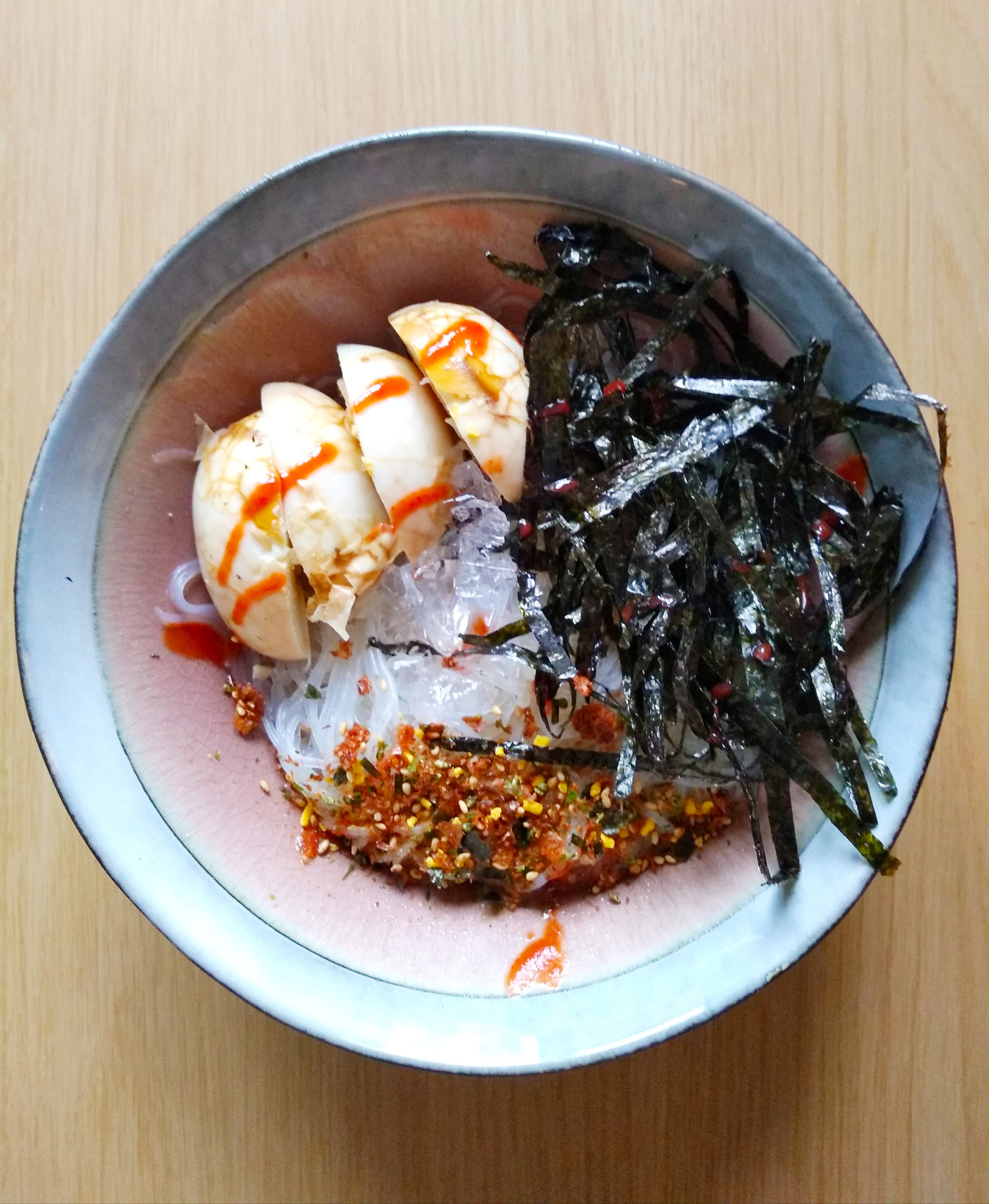
FoodMarble AIRE is the world’s first personal hydrogen breath tester. It is a pocket-sized breath analysis device. It helps people with chronic digestive issues determine the foods that work best with their digestive system. To learn more about FoodMarble, visit foodmarble.com

